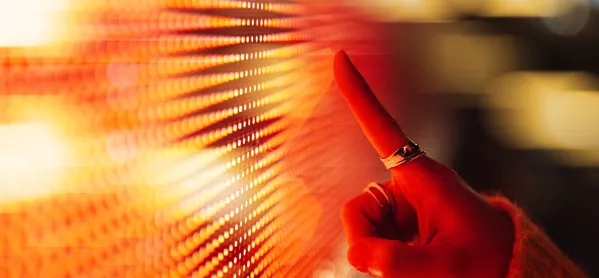Exam board OCR has announced plans to offer the first fully digitally-assessed GCSE in computer science for students starting their course in 2025 if it receives regulatory approval from Ofqual.
Jill Duffy, chief executive of OCR, said a pilot run earlier this year had “shown that digital exams work”.
The exam board said schools would still be able to opt for a paper-based assessment for the OCR computer science qualification if they prefer that approach, or if they do not have the digital infrastructure in place.
On-screen assessment
Ms Duffy said the plan was that “other subjects will follow” computer science in offering on-screen assessment.
If the computer science qualification is approved for students starting their GCSE courses in 2025, the first exams for it will be taken in the 2026-27 academic year.
“We’re talking to students and teachers right now to make this work,” Ms Duffy added. “It’s striking how readily students and teachers have taken to digital mock exams.
“Our pilots show that digital exams are quicker, more suited to how students learn, more sustainable and great learning tools. Digital assessment is not a hypothetical future, it’s happening now.”
Ms Duffy said OCR’s pilot of digital exams showed students “appreciate being able to type rather than handwrite their answers, seeing wordcounts and timers as they progress”.
“It brings greater clarity to the marking process,” she said, and added that digital exams are “far closer to real industry and further study experiences”.
Ms Duffy said schools and teachers need support “so that every student can benefit from world-class digital infrastructure”.
“That means investment, training and guidance to realise this enormous opportunity to build a fairer system,” she said.
OCR said 88,350 students took the computer science GCSE in 2023, a 12 per cent year-on-year increase.
In the new digitally-assessed GCSE, students will work in a so-called integrated development environment, which allows their digital coding to take place and be assessed accurately.
‘Paves the way for other subjects’
Tom Middlehurst, assessment specialist at the Association of School and College Leaders, said: “We welcome this important step in moving from pen and paper exams towards the use of digital assessment.
“This clearly makes perfect sense for computer science GCSE but also paves the way for other subjects, giving students the opportunity to type scripts, making it easier for examiners to mark them, and reducing the reliance on the industrial-scale operation and carbon footprint of printing and transporting millions of exam papers.”
In England, students have been taking digital mocks in OCR’s GCSE computer science for a year, with GCSE English mocks added this month.
Pearson already offers an on-screen exam for its computer science GCSE, though only for one paper.
Outside the UK, Cambridge International is offering on-screen exams for IGCSE and A-level science subjects, with several other subjects launching in 2024. Pearson also offers online IGCSEs, with more launching in 2024.
‘Delight’ over digital exams
Meanwhile, exam board AQA is aiming to roll out on-screen exams over a period of years and it hopes that students will sit at least one major subject digitally by 2030.
The reading and listening components of GCSE Italian and Polish would be the first to move to digital exams in 2026, according to proposals by the exam board.
Computer scientist Professor Simon Peyton Jones, engineering fellow at Epic Games, said he is “delighted” OCR is offering the digital exam.
He said: “It’s no surprise that so many young people want to study and work in computing, from generative AI to gaming, there is a vast range of fulfilling opportunities.
“Digital assessment makes particular sense for computer science: it brings assessment closer to the real world, and will allow young people to demonstrate their capabilities more authentically.”





